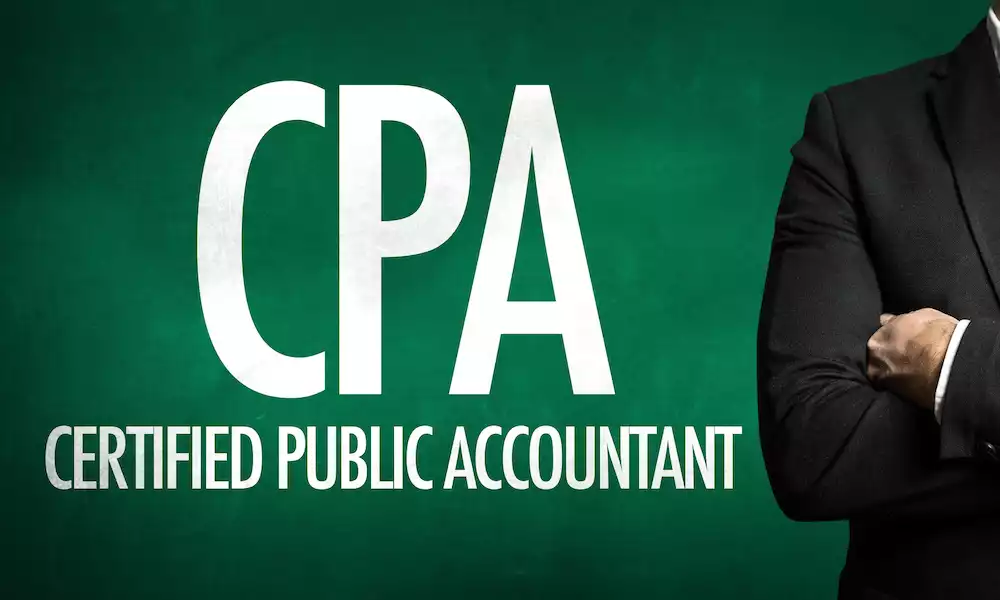Accounting & Finance
Mitigating Financial Risks: How CPAs Protect Small Businesses

Certified public accountants (CPAs) can mitigate a business’s financial risk; to do so, they are more qualified than accountants.
For example, in addition to a bachelor’s degree (the bare minimum requirement), CPAs have passed a regulatory exam like the U.S. Uniform CPA Exam and have work experience.
CPAs are qualified to provide financial advice to business managers.
To engage a CPA, their qualifications come at a premium, whether recruiting one or enlisting a third-party service.
A CPA’s extensive education and expertise command a big salary, between five and six figures, depending on experience and seniority. The cost of their services, however, varies by location.
Large companies need a CPA’s proficiency, and Small businesses need them just as much for reasons ranging from tax preparation to forecasting growth.
Migrating Business’ Financial Risk
How does CPA mitigate a business’s financial risk?
Internal control
Internal control is a less-explored aspect of business growth, but a lack thereof can be deadly. A study published in the Review of Accounting Studies states that accounting fraud cases occur in two out of five companies. As a result, publicly traded businesses lose 1.6% of their collective equity annually; in 2021, the loss was valued at USD$830 billion.
Among the most common incidents involve misappropriating business funds, sometimes called embezzlement. Without the proper means to track cash flow, dishonest employees can get away with close to millions by using a legitimate expense as a front. By the time the owner discovers the deception, the company will have lost so much to the point of closure.
While a CPA is not required to audit a business, they can assume some essential responsibilities to improve internal control. Examples include:
- Reviewing receipts and other documents reporting expenses
- Confirming assets and evaluating inventory procedures
- Educating employees and clients on the importance of proper accounting
- Conducting limited background checks on applicants and new hires
In a way, a CPA for small businesses is at the forefront of the campaign against corruption and fraud in a business or organization. The International Federation of Accountants (IFAC) stresses that accountants are in a prime position to mitigate the effects of such acts in the public and private sectors, regardless of size, through their work.
Tax compliance
In September, the Internal Revenue Service (IRS) announced it would adopt AI to go after high-income enterprises that owe millions in back taxes.
Among those on the list are dozens of significant partnerships with over USD 10 billion in assets. This reinvigoration of a federal agency that has been underfunded for years should be a wake-up call for business owners to fulfill their tax obligations.
Small players with limited revenue and capital can’t afford to earn the agency’s ire, as the penalties can quickly stack up against them. For instance, failure to file taxes on time slaps a 5% penalty for each month of delay and can go up to 25%.
There are multiple reasons for such delays, one of which is the struggle to grasp the convoluted federal tax code. It also doesn’t help that the business is responsible for filing other than income tax, such as estimated, employment, and excise taxes.
Tax planning and preparation are within the CPA’s list of expertise. Although not as specialized in the procedure as licensed tax preparers, they have extensive knowledge of business tax policies, including potential tax breaks.
A company that hires one usually doesn’t need a tax preparer, especially if it needs know-how beyond taxes, such as preparing financial statements.
Unlike tax preparers, CPAs are one of a few professionals who can be endowed with the Power of Attorney. With this authorization, they can represent the business on its behalf before the IRS, receiving its tax information and disputing applications of tax policies.
A Power of Attorney will last until the business revokes it or appoints a different eligible individual.
Financial audit
Occasionally, the IRS conducts randomized, independent audits of taxpayers’ returns.
While an audit by no means implicates one of an accidental error or possible fraud, it can make business owners understandably nervous.
It’s estimated that these audits occur in 1% of tax returns each year, but businesses can increase their chances of being dragged in one in various ways, not the least of which include the following conditions.
- Revenue increase warranting movement to a different tax bracket
- Filing income tax when there’s no taxable income to report
- Filing income tax with transactions from investors and partners
- Failure to report all taxable income, especially if the IRS can trace it
- Deductions like home office expenses or using a personal vehicle for business
If yours happens to be picked for an audit, the agency will inform you through telephone or mail (never via email).
The letter comes with other documents, primarily Form 4549, which outlines the agency’s proposed changes to your returns moving forward. Upon receiving it, you have 30 days to review and dispute the proposal if necessary.
However, appealing to the IRS is somewhat akin to taking a matter to court, as it requires valid evidence to support your argument. One such document is a certified financial statement (CFS), which can only be certified by an independent CPA. Balance sheets, cash flow statements, and income statements are common examples.
As mentioned previously, a CPA can represent your business before the IRS. That’s why it’s never a bad idea to have one working for you.
Business consultation
While a welcome advantage, a business degree isn’t required to start a business. If household names like Facebook and Microsoft are any indication, a person doesn’t even need a college degree to do so.
Regardless of formal education, any startup owner has to fight an uphill battle to achieve long-term success. Product design and marketing are only the tip of the entrepreneurial iceberg. The less thrilling yet more essential aspects, ranging from managing taxes to paying employees and suppliers, lie underneath.
However, no other facet of business management is more crucial than that first step—making the call to start one. You don’t want an idea to sound good only on paper. Some experts recommend discussing it with a CPA to determine its profitability by evaluating the associated costs.
In a way, your first meeting with a CPA sets your venture up for later steps in getting the startup off the ground. You’ll know a professional who can help you sort bookkeeping functions and tax obligations, among other things.
Conclusion
A CPA’s broad range of capabilities makes them a fundamental part of the equation for business success. If you ever plan to hire one, remember to make the most of their multifaceted talents by assigning them vital roles in the organization.









